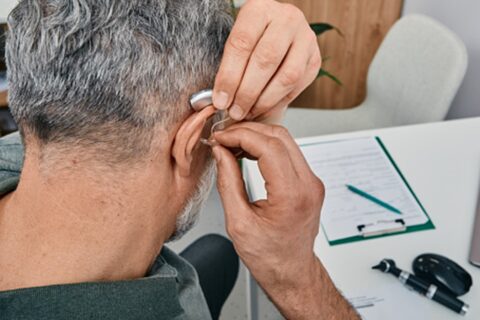How Hearing Affects Speech Development in Children

Speech development in children is influenced by various factors, including the ability to hear and perceive sounds accurately. Even mild hearing impairment can negatively affect their speech development. It’s important for parents, caregivers, teachers, and other adults to recognize the signs that indicate speech may not be developing properly. With a thorough hearing evaluation, you can determine if your child is experiencing hearing impairment and take proper action.
The Mechanics of Hearing and Speech Development
Hearing is the foundation upon which speech development is built. From the earliest stages of infancy, children are exposed to a world filled with sounds, laying the groundwork for language development. The process begins with the auditory system, which consists of the outer, middle, and inner ear, as well as the auditory nerve and the brain’s auditory centers.
When a child is exposed to speech sounds, the intricate machinery of the auditory system comes into play. The outer ear captures sound waves and directs them into the ear canal, where they strike the eardrum. These vibrations are then transmitted through the middle ear’s tiny bones to the fluid-filled inner ear. Here, hair cells translate the vibrations into electrical signals that are sent to the brain via the auditory nerve.
These signals are processed in the auditory cortex of the brain, where they are interpreted as distinct sounds and organized into meaningful language. This process is essential for speech development, as children learn to associate specific sounds with corresponding meanings, forming the basis for language comprehension and production.
Signs of Impaired Speech Development
Proper speech development is a gradual process, and each child progresses at their own pace. However, there are certain signs that may indicate potential speech development issues, often stemming from hearing difficulties:
- Limited Vocabulary: Children with hearing impairments may struggle to differentiate between similar speech sounds, leading to a restricted vocabulary.
- Articulation Challenges: Difficulty in hearing and reproducing specific sounds can result in unclear speech and articulation issues.
- Delayed Language Milestones: If a child is not reaching language milestones within the expected timeframes, it could be linked to hearing problems affecting their ability to understand and produce speech.
- Lack of Response: Infants not reacting to sounds or failing to turn their heads toward sources of sound could be showing signs of hearing impairment.
- Inattentiveness: Hearing difficulties might lead to difficulties in focusing on conversations or instructions, often mistaken for inattentiveness or disobedience.
The Importance of Hearing Evaluation
Timely and accurate hearing evaluations play a crucial role in ensuring proper speech development in children. Regular assessments, starting from infancy, can help identify potential issues early on, enabling timely interventions and support. Here’s how a comprehensive hearing evaluation contributes to speech development:
- Early Detection: Hearing evaluations can identify hearing impairments in their initial stages, allowing for early intervention when the brain’s plasticity is at its peak, and speech development is most malleable.
- Tailored Interventions: Based on the evaluation results, professionals can recommend personalized interventions, such as hearing aids, cochlear implants, or speech therapy, to address specific needs.
- Prevention of Speech Delays: Timely interventions can prevent speech delays by addressing the root cause of hearing difficulties and providing the necessary support for language acquisition.
- Enhanced Communication Skills: Addressing hearing issues early can lead to improved auditory processing, allowing children to develop clearer speech, better articulation, and enhanced communication skills.
- Boosted Confidence: When children can effectively communicate, their self-esteem and confidence receive a significant boost, positively influencing social interactions and academic performance.
Hearing serves as the cornerstone upon which the edifice of speech is constructed. From the mechanics of sound perception to the nuances of language comprehension and production, hearing plays a pivotal role. By recognizing the signs of impaired speech development, seeking professional hearing evaluations, and embracing appropriate interventions, we can help children overcome obstacles and reach their full potential in their speech and communication.


